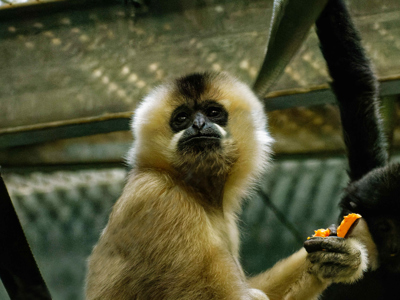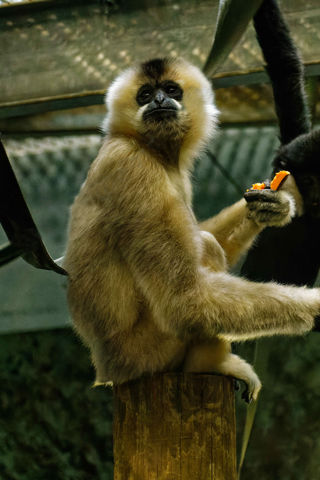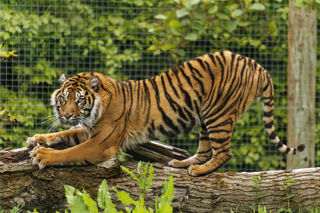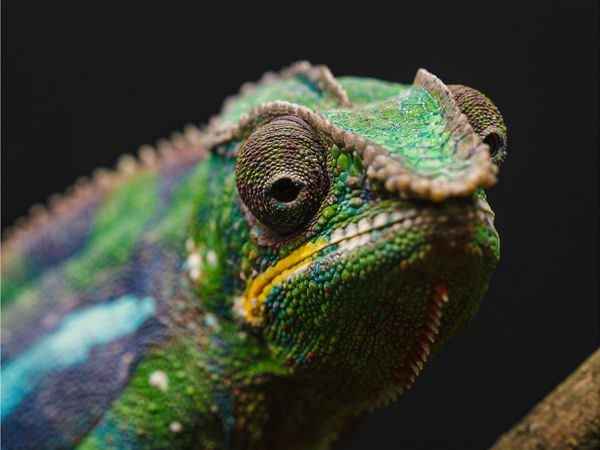
Northern White-Cheeked Gibbon
White-cheeked gibbons are small apes and, like all apes, they do not have a tail. This is an easy way to tell the difference between apes and monkeys. Northern white-cheeked gibbons are sexually dimorphic (males and females are different). Although all are born a cream colour, males turn black with white cheek patches at two years old. Females also turn black at this age but return to a mostly cream colour once they are sexually mature.

White-cheeked gibbons have long arms that they use to hang from branches and swing through trees. This swinging movement is called brachiation. Each family group retains their own territory through loud vocalisations. Males advertise their location to neighbouring groups whilst the female’s call is used to repulse those neighbours.
They live in monogamous pairs so a male and a female live together and rear their offspring together. Breeding occurs throughout the year. The infant is dependent on its parents until the age of two, but will live with them until it matures at six to eight years old.

Northern white-cheeked gibbons eat mainly fruit, but they also eat leaves, flowers and insects. Unlike other primates, they forage throughout the entire day.
The main threat facing these gibbons is habitat loss as wild forest is converted into farmland or used as fuel wood. It is believed to have become extinct in China but is protected in other countries throughout its range.
Key Facts:
Conservation Status: Critically Endangered
Distribution: Laos, Vietnam
Habitat: Tropical Forest
Diet: Flowers, Fruit, Insects, Leaves
Height: 45 – 60cm
Weight: 5.5kg
Gestation: 7 months
No. of young: 1 – 2
Life Span: 30 years

SUPPORT OUR ANIMALS
If you're looking for an alternative way to donate to Twycross Zoo, you can help support our animals and our zoo keepers by purchasing something from our Amazon Wishlist!
Updated regularly by our zoo keepers, the items on the list help to provide enrichment for our animals and keep their habitats well maintained.
Every donation helps us as a conservation charity.
